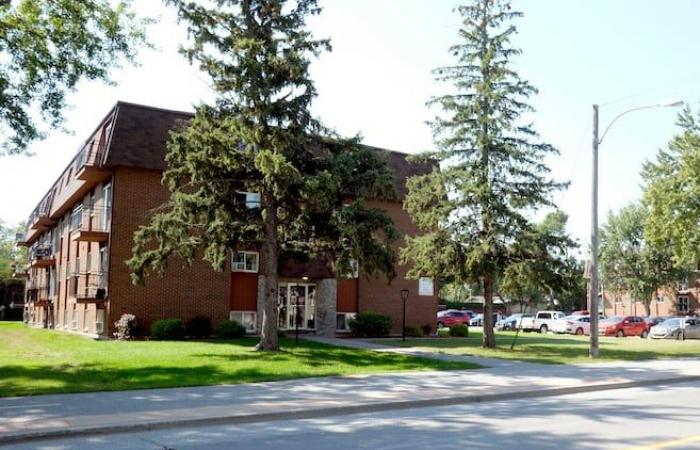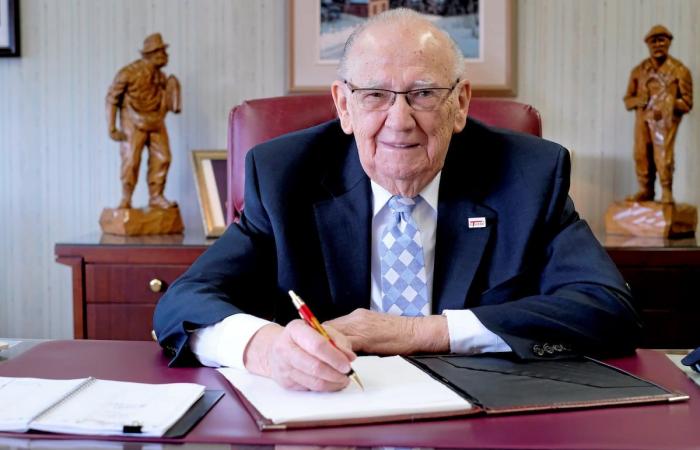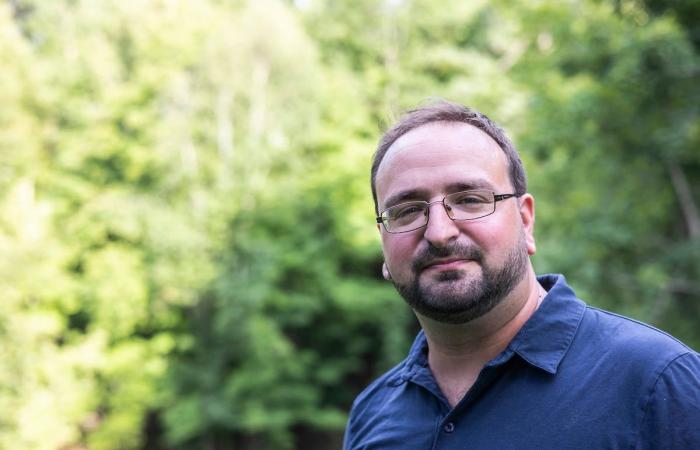The entire residential and commercial park of the late Eugène Tassé is at stake. In the opinion of several developers, this would be the largest residential real estate transaction in the history of the region. To the extent that the law allows it, Mayor Maude Marquis-Bissonnette does not rule out the possibility of trying to block or slow down the transaction if the public interest should require it.
Following Mr. Tassé’s death at the age of 96 in February 2022, Desjardins Trust was entrusted with the role of liquidator of the real estate assets of the businessman born in Bourget in Eastern Ontario.
According to our information, the proceeds of the sale, which should exceed $100 million, must be transferred to the foundation that would bear the philanthropist’s name. The law firm TCJ was retained by the trust to orchestrate the transaction. The firm’s president and CEO, Normand Therrien, did not want to answer our questions.
The entire residential and commercial park of the late Eugène Tassé is at stake. In the opinion of several developers, this would be the largest residential real estate transaction in the history of the region. (Patrick Woodbury/Le Droit)
Desjardins Trust confirmed to Le Droit that a potential buyer was recently selected and that due diligence is underway. The trust’s spokesperson, Jean-Benoît Turcotti, simply said that this is a “group of buyers serious enough for the process to continue.”
The identity of this group of buyers is currently one of the biggest mysteries in town. According to several sources, it is a completely private group. We have not been able to validate this information. No one at the City of Gatineau or in the real estate community seems to know who it is. Le Droit was able to confirm that developers such as Groupe Heaffey, Multivesco or Brigil are not involved.
Will
Eugène Tassé’s will is apparently clear about his desire to maintain the affordability of his real estate portfolio. Desjardins Trust confirms that it stressed the importance of this element to potential buyers.
“We set out the requirements [testamentaires]but afterwards, the purchaser, we will not be behind to validate and verify what will be done, noted Mr. Turcotti. However, we mentioned for us the importance that it had to maintain a certain affordability.”
Nothing would therefore force the potential purchaser of Eugène Tassé’s real estate portfolio to respect the latter’s wishes once the transaction is completed.
Fear for affordability
Several housing industry stakeholders contacted in recent days are perplexed by the possibility that an offer free of public financing could ensure the affordability of rents in Tassé buildings.
Not knowing the identity of the potential buyer, Mayor Marquis-Bissonnette is forced to walk on eggshells. She wants to assume the good faith of the group of investors, but in the midst of a housing crisis, she can’t help but worry about what’s next.
Gatineau Mayor Maude Marquis-Bissonnette. (Patrick Woodbury/Le Droit Archives)
“This is a file that we are following very closely, on which many people are currently working,” said Ms. Marquis-Bissonnette, when questioned about this transaction by Le Droit on Monday. The importance of these 1,000 affordable housing units is crucial. It is also the potential for development above the commercial complexes of the park. [estimé à plus de 500 unités]. It is extremely important. The teams are currently evaluating all the tools at our disposal so that we can preserve this affordable housing stock. We are afraid of losing these units. We have little time to act. It is urgent. Decisions are being made very quickly.”
The spokesperson for Desjardins Trust specifies that there is not yet a signed deed of sale. He adds that the process could last “a few more weeks.”
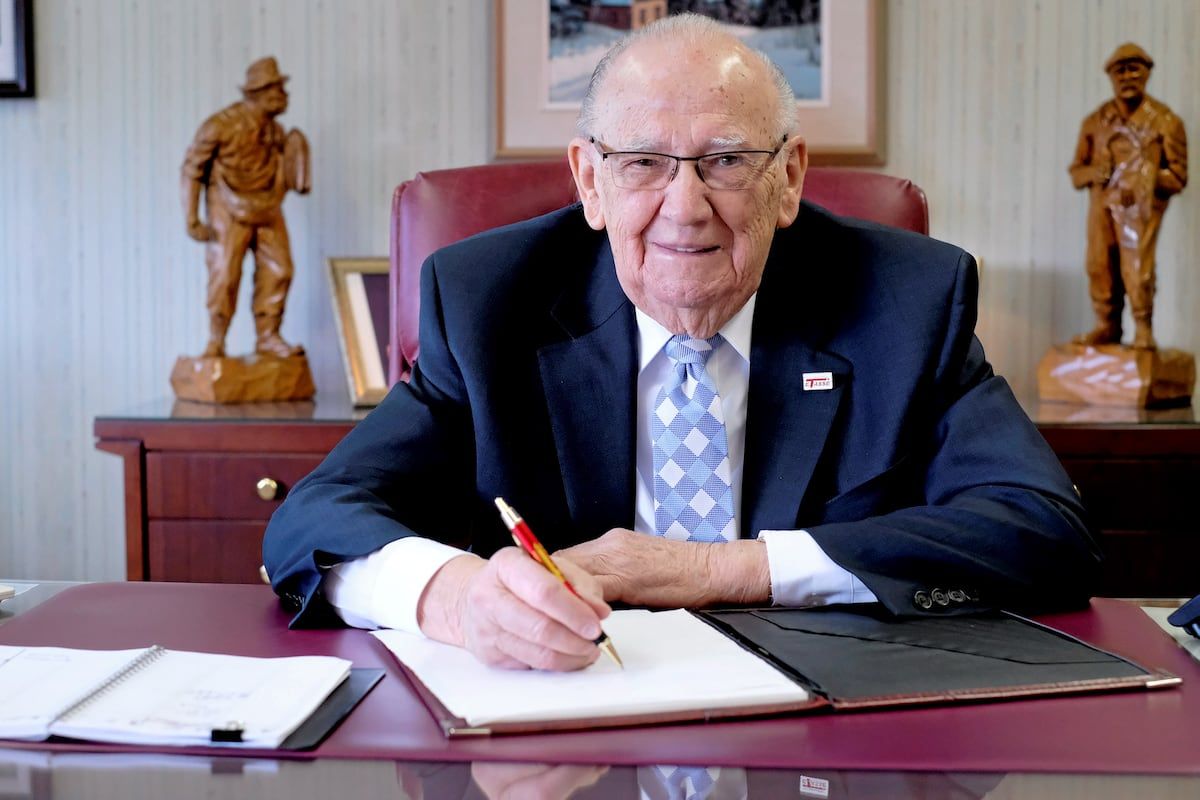
Eugène Tassé, a monument of the Outaouais entrepreneurial community, passed away at the age of 96 in February 2022. (Patrick Woodbury/Le Droit Archives)
The president of the Gatineau housing shock committee, Daniel Champagne, maintains that a buyer who wants to move away from the mission that Mr. Tassé had set for himself with this real estate portfolio will face significant political and popular pressure.
“I can’t believe that the winning offer would just be the most attractive one, without worrying about perpetuating Eugène Tassé’s mission,” he adds. “While we’re fighting to add affordable housing, we should also be fighting not to lose it. That would be worse than the 2018 tornado for our affordable housing stock.”
Two finalists
The Cargo Foundation, which is notably behind the cooperative residential project that will take the place of the Giant Tiger, on Eddy Street, claims to have been one of the two finalists in the sale process. The non-profit organization learned in recent days that the offer it has been working on for a year was not retained for the rest of the Desjardins Trust’s process.
In a letter sent to the city council last Friday, and of which The Law obtained a copy, the Cargo Foundation is asking the City of Gatineau to act “concretely and quickly” to avoid a transaction that could have a negative impact on the affordable housing stock. The Foundation states that it has been able to gather financial commitments of “several hundred million dollars” to take charge of the management and development of this real estate stock, the affordability of which it wishes to preserve.
The Cargo Foundation claims to have financial commitments from the Société d’habitation du Québec (SHQ), the Canada Mortgage and Housing Corporation (CMHC), the Caisse d’économie solidaire de l’Outaouais, Desjardins entreprises Outaouais, the Lucie and André Chagnon Foundation, the Choquette-Legault Foundation and New Market funds.
Gatineau evaluates “all options”
Given the situation, the Foundation is asking the City of Gatineau to use its right of pre-emption or to impose a land reserve in order to protect the public interest and secure the affordability of these 1,000 housing units which, in some cases, offer rents well below government affordable housing programs.
The mayor’s office was unable to specify Tuesday whether such scenarios are conceivable, or even legally possible. Analyses are continuing, it was specified. “In terms of housing, we must be creative in finding solutions,” recalled Ms. Marquis-Bissonnette. “We are evaluating all options.”
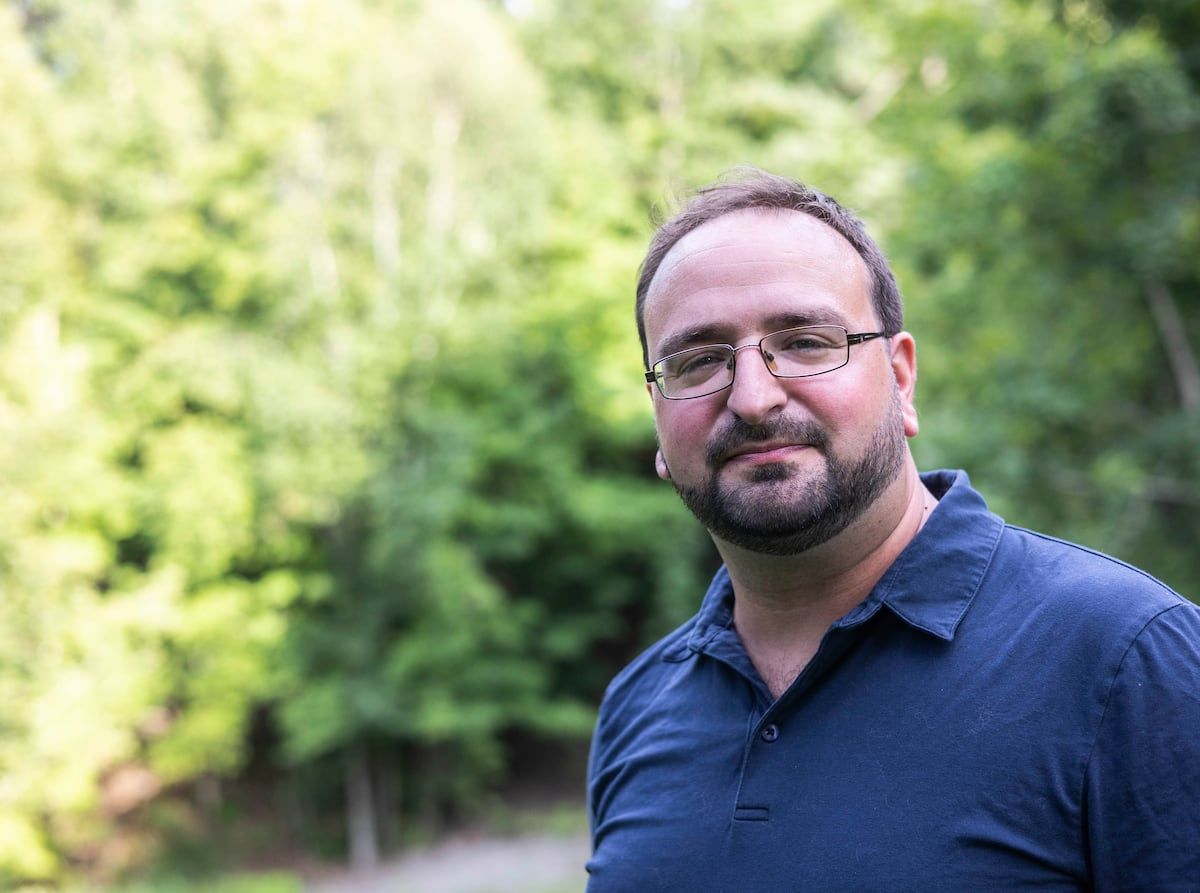
FIHAB President and Cargo Coalition Spokesperson Raphaël DÉry. (Simon Séguin-Bertrand/Le Droit Archives)
The spokesperson designated by the Cargo Foundation in this matter, the director of the Intercooperative Housing Federation of Western Quebec (FIHAB), Raphaël Déry, stated to the Right that there is every reason to be “perplexed” about the possibility of preserving the affordability of this housing stock without public financing.
“We think it’s in the public interest for elected officials to know that our proposal would help maintain the perpetual affordability of this housing stock,” he said. “We’re perplexed about the ability to preserve this housing stock in an affordable manner without public funding, without our project. If a scenario with public funding is chosen by the Trust, that’s possible, but we’re perplexed if a 100% private project is chosen.”
During the election campaign for mayor of Gatineau, real estate broker Stéphane Bisson had made a commitment, if elected, to use the tools at the city’s disposal to secure the Immeubles Tassé. Today, he sees a “real risk” that a significant portion of the affordable housing stock will be weakened or even completely cut off.
“It will require a large down payment and then the buyer will have to renovate these buildings that are getting old,” he says. “If it’s completely private financing, the buyer will want to make his investment profitable. Without public financing like the SHQ’s participation, for example, it’s hard to believe that rents wouldn’t increase.”

